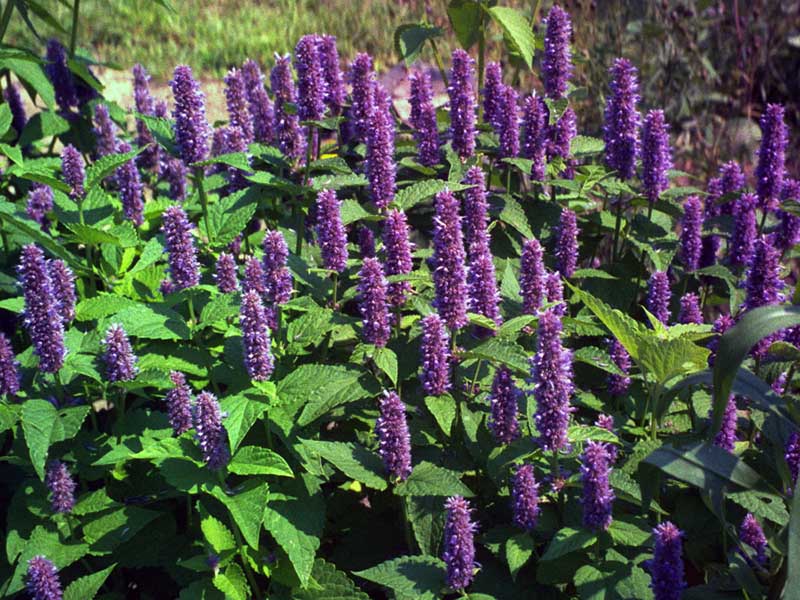Hyssop

Hibiscus
2019-10-26
Lemon Verbena
2019-10-26Common Name
Hyssop
Scientific Name
Hyssopus officinalis L.
History
Hyssop is an evergreen and perennial herb of the Lamiaceae family that its leaves are small and linear and its flowers are purple-blue. Hyssop is native to Mediterranean countries and mild regions of Asia but it is now widely cultivated around the world and is often used as a decorative plant. The origins of hyssop are Europe, the Mediterranean, North Africa, Syria and Western Asia. Its growing site is Asia, the Mediterranean, Southern Europe and Syria. Name of hyssop probably without any change is derived from Greek word of Hyssopus and the Hebrew word of ‘’Esob’’ means ‘’Holy plant’’.
Health Benefits
1. Regulating Blood Glucose Levels
In 2008, a study was conducted on the inhibitory activity of medicinal plants against angiotensin (ACE) converting enzyme and digestive enzymes associated with diabetes and its results were published in Journal of Ethno pharmacology. Based on this study it is indicated that hyssop extract is effective on alpha glucosidase enzyme. Enzymes of alpha amylase and alpha glucosidase are involved in glucose digestion and control the increasing blood glucose level after each meal. Inhibitory property of alpha glucosidase in aqueous-methanol extracts of dried leaves of hyssop was observed. In a study that was done in 2003 the inhibitory effect of alpha glucosidase of hyssop extract on hyperglycemia (increasing blood sugar) was evaluated and its results were published in Journal of Nutritional Science and Vitamin ology (Tokyo). Based on these findings, 0.5 and 1 mg/ml of hyssop extract during 120 minutes inhibited excessive increasing of blood glucose level. Based on this, hyssop can be a helpful nutritional supplement for inhibition hyperglycemia after meal.
2. Relieving Muscle Spasms
In 2002, the relaxing effects of hyssop extract oil and some of its main ingredients such as Isopinocamphone, Limonene and Beta-pinene on intestinal muscles of rabbit and guinea pig were studied and its results were published in Planta Medica. Extract oil and Isopinocamphone are depending on density inhibited contraction caused by barium chloride and acetylcholine in ileum (part of the small intestine) of guinea pig while limonene or Beta-pinene had no effect on contraction of tissue. Also in ileum of guinea pig, hyssop extract oil prevented contraction caused by calcium chloride CaCl2.
3. Boosting Immune System
In 2009, the antiviral activity of methanolic extract of hyssop leaves against of Herpes simplex viruses, type 1 (wild type) and type 2 (resistant strains) in laboratory condition and on animal model was investigated and its results were published in Journal of medicinal Plants Research. The extract of the plant increased the mean survival time in infected undertreated mice by 55-65% compared to untreated mice. Also mortality rate in mice treated with hyssop extract significantly reduced by 90% but mortality rate in untreated mice was 100%. These results have been shown that the extract of this plant has antiviral property against herpes simplex (HSV) and it can be an alternative treatment for infections of HSV. In the other research that its results were published in journal of Biochemical and Biophysical Research Communications, the extracted MAR-10 polysaccharide from hyssop as depending on density inhibited proliferation of HIV-1 virus. Based on this study, MAR- 10 polysaccharide contains antiviral strong activity of HIV-1.
4. Improving Respiratory Tract Function
In 2014, the effect of hyssop on inhibition of respiratory tract inflammation in mice with chronic asthma was investigated and its results were published in journal of Experimental and Therapeutic Medicine. For this purpose, 32 mice were divided into 4 groups: normal, with chronic asthma, under treatment with Dexamethasone and under treatment with hyssop. The results have shown that in the group with chronic asthma and under treatment with dexamethasone increased immunoglobulin E of serum (immunoglobulin E exacerbates asthma) in comparison to normal group and excessive airway mucus secretion was observed in these two groups. But the level of immunoglobulin E of serum in under treatment mice group with hyssop was similar to the results of normal group. Findings of this research have shown anti-inflammatory property of hyssop and its positive effect on breathing.
Bioactive Compounds
Pinocamphone, Apigenin, Luteolin, Quercetin derivatives, Phenolic acids such as Ferulic acid and Caffeic acid, Tannins, Monoterpenes (Cis-Pinocamphone, Trans-Pinocamphone, Beta-Pinene) and Sesquiterpenes (Germacrene D, Elemol).
Traditional Use
Hyssop in traditional medicine is used as disinfectant and antibacterial, appetizer, analgesic and painkiller, expectorant, anti-flatulence and diuretic. Hyssop plant stimulates secretion of gastric juice and improves food digestion and absorption. Brewed dried leaves used to decreasing blood sugar, reducing inflammation, reducing spasm in straight muscle of digestive system and antimicrobial activity. Also this plant is used to treat fever, rheumatism, vomiting and spasm. Tea made from this plant is effective on remove neurological disorders and toothache.




